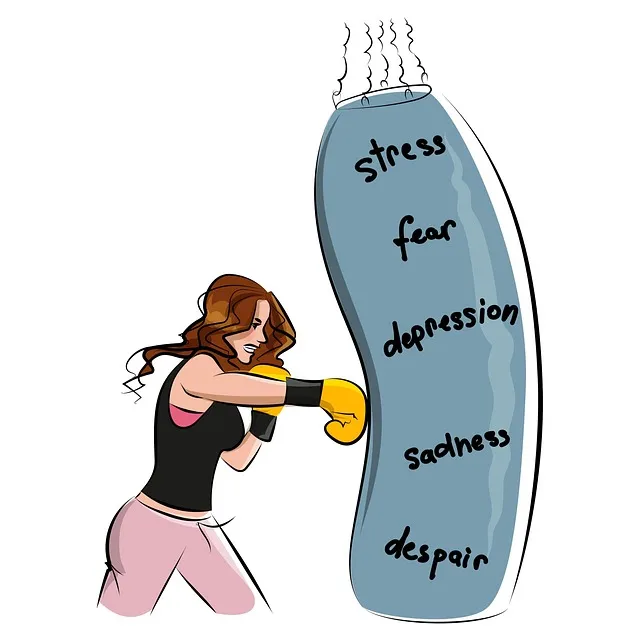The growing demand for accessible mental wellness support drives the market for psychological apps, with competitive advantages like 24/7 availability and personalized plans. By understanding user needs and integrating best practices, developers can create compelling products to compete with established services like Kaiser Permanente's psychiatric phone number Golden while offering unique value to a broader audience. Strategic marketing blends online (social media, influencer collaborations) and offline (community outreach, journaling exercises) tactics, utilizing evidence-based content for stress reduction methods. Success and user retention are measured through KPIs, with continuous improvement based on feedback crucial for engaging platforms supporting mental health journeys, as exemplified by Kaiser Permanente's phone support.
“In today’s digital age, mental wellness apps are transforming how individuals access support, with services like Kaiser Permanente’s psychiatric offerings via phone highlighting growing demand. This article delves into a comprehensive marketing strategy development for such apps, focusing on market research to identify target audiences and unmet needs.
We explore the value proposition of these apps, emphasizing their unique selling points over traditional therapy—convenience and accessibility. From social media campaigns to influencer collaborations, we navigate effective marketing channels and strategies. Additionally, we discuss measuring success through KPIs and user retention, ensuring continuous improvement based on valuable feedback.”
- Market Research and Target Audience Identification: Understanding the need for mental wellness apps and analyzing competitors like Kaiser Permanente's psychiatric services, focusing on their phone number accessibility for patient support.
- Value Proposition and Unique Selling Points: Crafting a compelling narrative around app features, benefits, and how it differs from traditional therapy, highlighting its convenience and accessibility.
- Marketing Channels and Strategies: Exploring effective promotional avenues, including social media campaigns, partnerships with mental health advocates, influencer collaborations, and community engagement initiatives.
- Measuring Success and User Retention: Defining key performance indicators (KPIs) to track app downloads, user engagement, and retention rates, as well as implementing strategies for continuous improvement based on user feedback.
Market Research and Target Audience Identification: Understanding the need for mental wellness apps and analyzing competitors like Kaiser Permanente's psychiatric services, focusing on their phone number accessibility for patient support.

The market for mental wellness apps is booming, fueled by a growing awareness and need for accessible, on-demand psychological support. Among established providers, Kaiser Permanente stands out with its psychiatric services, easily accessed through their dedicated phone number. This strategic approach highlights the importance of convenient, immediate support for mental health issues. By understanding user needs and pain points – such as anxiety relief and cultural sensitivity in mental healthcare practice – app developers can tailor solutions that fill existing gaps in the market.
Competitive analysis reveals key differentiators. While Kaiser Permanente’s model emphasizes phone-based accessibility, mental wellness apps offer 24/7 availability, digital tools for self-management, and often, personalized treatment plans. Incorporating best practices in risk management planning for mental health professionals is essential to ensure safety and efficacy. By integrating these insights, developers can create compelling apps that not only compete with established services like Kaiser Permanente psychiatry phone number Golden but also offer unique advantages, capturing a broader user base seeking innovative approaches to mental wellness.
Value Proposition and Unique Selling Points: Crafting a compelling narrative around app features, benefits, and how it differs from traditional therapy, highlighting its convenience and accessibility.

In today’s fast-paced world, mental wellness apps offer a convenient and accessible solution for individuals seeking support, especially those who might face barriers to traditional therapy, like the high costs or limited availability of psychiatrists. Unlike conventional psychiatric services, our app provides users with on-demand access to a range of self-care practices and resilience-building tools tailored to their unique needs. It’s more than just a therapy alternative; it’s a personalized guide for navigating stress, anxiety, and even burnout prevention strategies specifically designed for healthcare providers grappling with the demands of their profession.
Crafting a compelling narrative around these features involves emphasizing convenience, privacy, and effectiveness. By integrating evidence-based techniques and offering 24/7 accessibility, our app ensures users can practice self-care on their terms. Unlike the struggle to reach a Kaiser Permanente psychiatrist by phone, where wait times may be lengthy, our platform empowers individuals to take charge of their mental wellness instantly. Through unique selling points like these, we differentiate ourselves in the market, appealing to those seeking efficient and flexible solutions for improving their mental health and building resilience.
Marketing Channels and Strategies: Exploring effective promotional avenues, including social media campaigns, partnerships with mental health advocates, influencer collaborations, and community engagement initiatives.

In today’s digital age, marketing a mental wellness app requires a multi-faceted approach to reach and engage users effectively. Social media platforms offer powerful tools for spreading awareness about mental health issues and showcasing your app’s benefits. Creative campaigns, leveraging user testimonials, and interactive content can humanize the brand and build trust. Collaborating with renowned mental health advocates or influencers who can vouch for the app’s quality adds credibility and expands the reach to their dedicated followings.
Beyond digital channels, community engagement is vital. Implementing initiatives like a Community Outreach Program that partners with local support groups or integrating Mental Wellness Journaling Exercise Guidance within the app can foster a sense of belonging and encourage users to share their experiences. Additionally, leveraging the Golden (Kaiser Permanente psychiatry phone number) resources and expertise in mental health services can enhance the app’s reputation and provide valuable insights for content creation, ensuring your marketing strategies align with evidence-based practices for Stress Reduction Methods.
Measuring Success and User Retention: Defining key performance indicators (KPIs) to track app downloads, user engagement, and retention rates, as well as implementing strategies for continuous improvement based on user feedback.

Measuring success and user retention is a critical component of any mental wellness app’s marketing strategy. By defining key performance indicators (KPIs), developers can track essential metrics such as app downloads, average session duration, and user retention rates over time. These KPIs provide valuable insights into user engagement and help identify areas for improvement. For instance, if downloads are high but retention rates are low, it suggests that while users are initially attracted to the app, they may not be finding sufficient value to continue using it.
To enhance user retention, mental wellness apps should implement strategies based on continuous improvement cycles that incorporate user feedback. This can involve offering personalized content tailored to individual needs, integrating coping skills development modules, and providing resources for risk assessment and conflict resolution techniques. By actively listening to user suggestions and incorporating them into app updates, developers can create a more engaging and effective platform that supports the mental health journey of its users, as evidenced by Kaiser Permanente’s commitment to psychiatric services through phone-based support.
In conclusion, developing a robust marketing strategy for a mental wellness app involves a multi-faceted approach. By conducting thorough market research and identifying key target audiences, crafting a compelling value proposition that differentiates the app from traditional therapy, utilizing diverse marketing channels including social media and influencer collaborations, and continuously measuring success through relevant KPIs, developers can ensure their app reaches and benefits those in need. Notably, contrasting with Kaiser Permanente’s psychiatry phone number approach, our strategy emphasizes digital accessibility, convenience, and a personalized user experience to foster long-term engagement and mental wellness in the Golden state and beyond.






